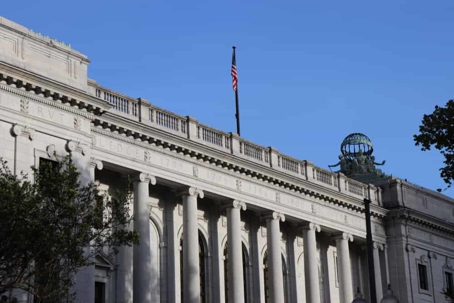The Federal Trade Commission has successfully obtained an additional 60 days to decide whether to abandon its defense of the controversial nationwide non-compete ban, with a court-mandated deadline of September 8, 2025.
Legal experts universally expect the Trump administration's FTC will drop its defense at that time, effectively ending the federal non-compete rule that has been blocked by federal courts since August 2024.
The extension request, granted by the Fifth Circuit Court of Appeals on July 11, 2025, gives the reconstituted FTC additional time to formally abandon a rule that FTC Chairman Andrew Ferguson has consistently criticized as "unconstitutional" and "the most extraordinary assertion of authority in the Commission's history."
FTC Likely to Drop Appeal of Nationwide Ban
The FTC's July 10 motion explicitly cited "significant personnel changes" as justification for the 60-day extension, including the recent Senate confirmation of Republican Commissioner Mark Meador.
No change in legal status will occur until the FTC makes its final decision on whether to continue or abandon its appeal begun under the Biden administration.
The current political composition of the Commission – Republicans Ferguson, Meador, and Melissa Holyoak are the current commissioners – makes abandonment of the rule's defense virtually certain by the September deadline.
The Ambitious Rule That Never Took Effect
The FTC adopted its nationwide non-compete ban on April 23, 2024, in a 3-2 party-line vote under then-Chair Lina Khan. The rule would have prohibited virtually all new non-compete agreements and rendered most existing ones unenforceable starting September 4, 2024.
Legal challenges were filed almost immediately, and the rule has been entangled in federal litigation since. The rule remains enjoined nationwide based on an August 20, 2024 ruling by U.S. District Judge Ada Brown in Texas, who found the FTC exceeded its statutory authority and acted in an "arbitrary and capricious" manner.
Ferguson's FTC Embraces Targeted Enforcement Over Blanket Bans
FTC Chairman Ferguson's approach to non-competes reflects his broader regulatory philosophy. While opposing the blanket ban, he established a Joint Labor Task Force in February 2025 to pursue case-by-case enforcement against specific non-compete abuses.
"One of my top priorities is getting our super-talented enforcers at the FTC out there looking for non-compete agreements, no-poach agreements that violate the Sherman Act," Ferguson stated.
This targeted approach would focus on non-compete agreements that impose “unnecessary, onerous, and often lengthy restrictions on former employees’ ability to take new jobs in the same industry after they leave their employment.”
Non-Compete Agreements Remain Enforceable in Texas
With the federal ban on non-compete agreements effectively dead, state law continues to govern non-compete agreements across the country.
In Texas, non-compete agreements are enforceable, as long as they meet these requirements:
- Geographic scope: Limited to areas where the employer actually does business or has customers
- Time duration: Typically 1-2 years maximum (longer periods face greater scrutiny)
- Scope of restricted activities: Must be narrowly tailored to protect only the employer’s legitimate business interests (i.e. trade secrets, confidential information, and business goodwill)
- Adequate Consideration: The employee must receive something of value in exchange for the restriction, such as specialized or extensive job training, access to confidential or proprietary information, or access to a client list.
- Part of an Ancillary Agreement: Under Texas Business and Commerce Code § 15.50, non-competes must be "ancillary to" or part of an otherwise enforceable agreement, such as an employment agreement, sale of business agreement, or partnership agreement.
Keep in mind that Texas courts must "reform" (modify) overly broad agreements to make them reasonable rather than void them entirely.
September 8 Deadline Likely End of Nationwide Non-Compete Ban
The September 8 deadline will formalize what legal experts already consider certain: the end of the federal non-compete ban and a continuation of state-by-state governance of non-compete agreements.
At Hendershot Cowart, we will continue to follow this issue and share updates as merited.

